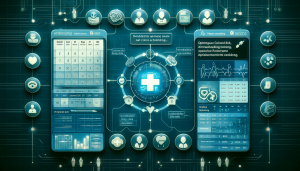 UseCasesFor.ai
UseCasesFor.ai
Choose Topic
 UseCasesFor.ai
UseCasesFor.ai
AI Use Cases
A collection of over 250 uses for artificial intelligence
A continually updated list exploring how different types of AI are used across various industries and AI disciplines,including generative AI use cases, banking AI use cases, AI use cases in healthcare, AI use cases in government, AI use cases in insurance, and more

Sign up
to receive a PDF containing all the use cases and stay updated with the latest AI trends and news (you can always unsubscribe)
Patient scheduling

Introduction
Due to the fast development of the healthcare sector, the patient scheduling process is a very important factor. With the help of technological improvements such as Machine Learning (ML), Computer Vision (CV), and Artificial Intelligence (AI), the patient scheduling has been revolutionized. By applying AI, the above mentioned concepts of predictive analytics, machine learning algorithms and other such sophisticated methods, scheduling of appointments in healthcare facilities can be enhanced, experience of patients can be elevated and overall health care results can be optimized.
Challenges
Matter concerning patient scheduling in the healthcare industry is complex. Some of these are overbooking, patient nonattendance, last minute appointment cancellations, improper management of the health care resources and difficulty in forecasting the patient turnover. However, the current scheduling procedures are still conventional and are mainly handled manually, which makes them slow and prone to mistakes. Also, the conventional scheduling systems usually have a hard time in handling emergencies as well as urgent cases. Also, there is a lack of individual approach in the appointment scheduling which results in increased patient complaints and negative experience.
AI Solutions
There are many ways in which AI can be used to help improve the patient scheduling process. Some of the benefits include; Machine learning algorithms can be used to review past data to determine the best time to expect the patient’s no show or last minute cancellation thus aiding in improved scheduling of the doctors and other hospital resources. Computer Vision, on the other hand, can offer real-time tracking of the physical environment and patients’ movement, which culminates to better scheduling. It is also capable of performing the scheduling process automatically and thus minimize the chances of mistakes that are made by humans and at the same time allow the healthcare personnel to attend to the patients. By applying predictive analytics to patient flow, it is possible to determine how many patients are likely to arrive at a certain time and therefore manage the resources effectively. Another area where AI can be very useful is in the scheduling of patients as personally tailored scheduling has been identified to improve patient satisfaction. For instance, the AI platform ‘LeanTaaS’ enhances the use of ML to determine patient appointment durations and thus reduce the patient wait time.
Benefits
There is a wide range of applications of ML, CV, and AI in patient scheduling, which present various advantages. Some of the advantages include enhanced patient satisfaction through quicker attendance times and scheduling that caters for the patient’s needs, enhanced efficiency through better resource management and lastly reduced costs through minimized overbooking and underutilization of resources. It also helps to ease the work load on the health care practitioners so that they can attend to the patients instead of being fixed on paperwork.
Return on Investment
It is possible to get a high ROI when implementing AI in patient scheduling. A study by Accenture states that AI applications in health can generate an estimated $150 billion of annual value addition to the US healthcare economy by 2026. For instance, Johns Hopkins Hospital, was able to boost patient appointments by 14% through integrating the LeanTaaS platform without even expanding on the existing staff.